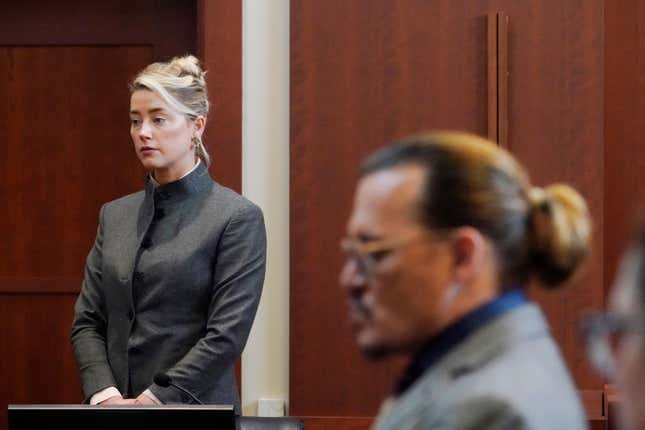Amber Heard Drops Appeal Against Johnny Depp: ‘This Is Not an Act of Concession’
Heard wrote Monday that she will pay her ex-husband the $10 million in damages and stop fighting, because she "simply cannot go through that for a third time."
JusticePolitics

Amber Heard announced on Monday that she’s made the “very difficult decision” to settle the defamation suit brought against her by ex-husband Johnny Depp, after a jury ruled in May that she must pay Depp $10 million. Heard initially appealed the case, but announced in a Monday Instagram post that she’s decided to just pay the man to avert another brutal and highly public trial.
“I cannot afford to risk an impossible bill—one that is not just financial, but also psychological, physical and emotional,” Heard wrote of her decision to settle. “Women shouldn’t have to face abuse or bankruptcy for speaking her truth, but unfortunately it is not uncommon.”
Depp sued Heard for a 2018 op ed in which Heard alluded to surviving domestic violence without naming Depp, two years after publicly accusing him of abuse. Prior to the U.S. jury’s ruling earlier this year, a judge in the U.K. ruled in 2020 that Depp had abused Heard.
In her Instagram post, Heard recounted the trauma of being publicly humiliated, vilified, and harassed throughout her weeks-long trial in April and May. “I defended my truth [and] in doing so my life as I knew it was destroyed. The vilification I have faced on social media is an amplified version of the ways women are re-victimised when they come forward,” she said.
-

-

-

-

-

-

-

-

-

-

-

-

-

-

-

-

-

-

-

-

-

-

-

-

-

-

-

-

-

-

-

-

-

-

-

-

-

-

-

-









































